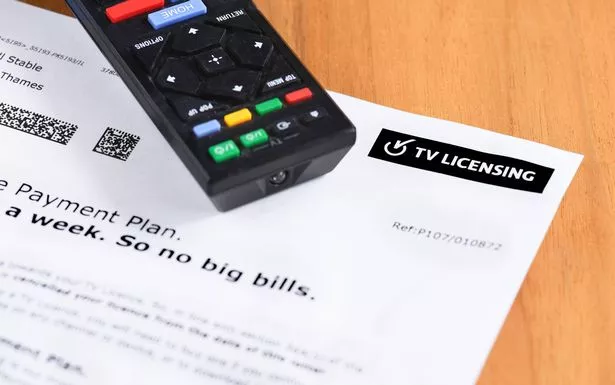The BBC has been battling a decline in TV licences as more people cancel their subscriptions There’s a high likelihood the TV licence cost will go up again next year(Image: Twenty47studio via Getty Images)
There’s a high likelihood the TV licence cost will go up again next year(Image: Twenty47studio via Getty Images)
Experts have predicted that the BBC TV licence could skyrocket to £180 next year – but the figure is yet to be officially confirmed. Sky’s Money blog suggested that the increase is likely to be based on the average Consumer Price Index reading.
In April 2025, prices escalated to £174.50 for a colour television – a rise of £5 from the previous year. Multiple newspapers have speculated that the annual cost could reach £182 next year.
The increase last year was determined by the average Consumer Price Index reading from October 2023 to September 2024, which stood at 2.96 per cent. In November 2024, Culture Secretary Lisa Nandy confirmed that the government intended to use this calculation for at least the next two years.
 Thousands of Brits have reportedly stopped paying for a TV licence(Image: Peter Dazeley, Peter Dazeleyvia Getty Images)
Thousands of Brits have reportedly stopped paying for a TV licence(Image: Peter Dazeley, Peter Dazeleyvia Getty Images)
Sky Money indicated that based on new CPI data from October 2024 to September 2025, the average across this 12-month period is 3.15 per cent, which would result in the licence fee reaching £179.99.
The Department for Culture, Media and Sport told Sky Money: “No final decision has yet been made on the exact level of next year’s licence fee. We will set this out in due course.”
Reaching £180 could encourage more people to abandon the licence. In July this year, the BBC announced that an additional 300,000 households have ceased paying the licence fee, reports the Express.
Its annual report disclosed that 23.8m licences were in force at the end of the year, down from 24.1m in 2023-24. The decline signifies a loss of approximately £50m in revenue for the corporation.
BBC bosses and the Government have begun discussions about the future of the corporation and its funding model, as part of the charter renewal process. Both parties have proposed changes to the licence fee.
However, senior BBC executives have attempted to dismiss the idea of transitioning to an advertisement-based subscription model, which is used by their digital rivals.
Last month, BBC director-general Tim Davie supported the prosecution of individuals who evade the TV licence fee, amidst calls for its decriminalisation. The director-general also maintained that the corporation’s journalists operate “without fear or favour”, despite a survey indicating that just over a third of people believe the BBC fails to maintain independence from the Government.
Figures from the House Of Commons Library reveal that over 25,000 individuals were convicted for evading the £169.50 fee in 2024, with women making up the majority. There have been increasing calls, including a public consultation in 2020 and a private member’s bill currently under discussion, to decriminalise licence fee non-payment for those aged over 75, as some view it as an overly severe penalty.
Mr Davie stated: “If people are evading the licence fee, it should be enforced. I support the current system, yes. For the vast majority of people watching, who we’re there to serve, and this is what we get when we talk to people, they’ll say, we must make sure that those people who should be paying, are paying. That’s fair.”
Mr Davie also expressed that he has “never doubted” his capability to lead the corporation, as its “Our BBC, Our Future” survey, released on Thursday, found that 38 per cent of viewers surveyed believe the BBC is “ineffective” at maintaining independence from the Government.
When questioned about the most significant challenge the corporation has faced during his tenure, he said: “I actually think the BBC’s choice to maintain impartiality in a world that is so polarised. It’s weaponised, we’ve got lobbies everywhere, it’s absolutely everyone trying to ascribe an agenda. If you make mistakes, it can impact trust, and I worry about that. I can reassure everyone that we are independent editorially, we absolutely act without fear or favour.”
Looking for more from MyLondon? Subscribe to our daily newsletters here for the latest and greatest updates from across London.

